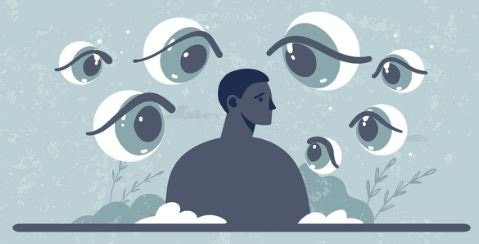Unlocking the Mystery of Social Anxiety: From Fear to Freedom
I. Tough Social Situations
Imagine yourself in a grocery store parking lot, the weight of your shopping bags bearing down on your arms. Suddenly, you hear an angry voice shouting in your direction. A man is storming towards you, pointing at your car. "You parked too close to mine!" he accuses, face red with anger. Your heart races, your palms sweat, and your mind goes blank. A wave of self-doubt crashes over you; you feel weak and vulnerable under his intense stare.
Your mind starts spinning, imagining every possible negative judgment he might be making about you. You worry that you're coming across as a pushover, unable to stand up for yourself. You desperately search for words to defend yourself, but they seem to be stuck in your throat. You're aware of onlookers and a fresh surge of fear arises. You worry about their silent judgment, seeing you as incapable of dealing with conflict. Welcome to the world of social anxiety.

This gripping scenario is not just a figment of your imagination, but a reality for millions worldwide. Public speaking situations. Starting a conversation. Maintaining a conversation. Among other events where you are interacting or being observed by others.
Social anxiety disorder (SAD), or social phobia as it's also known, is when social anxiety interferes with daily functioning - your role as a student, worker, partner, or friend. In the United States, it's more common than you might think, with around 12.1% of people experiencing it at some point in their lives and 7.1% of adults grappling with it each year. To get the label of SAD, you need to have multiple social fears that persist for at least six months and disrupt your life. Most people with SAD have a laundry list of eight or more social situations that make them sweat, from talking with an authority figure to eating in a group setting.
II. The Latest Science
I received an invite to join an international team of nearly 30 experts on social anxiety and related mental health difficulties. Our mission: Demystify the crippling fear of social anxiety that hinders countless individuals from reaching their full potential.
In our first scientific consensus article, we delve into about vulnerabilities.
What are the biggest factors that increase the likelihood someone will develop social anxiety problems?
What are the most promising directions for treating this condition?
Don't miss out on a unique opportunity to join hundreds of Provoked premium subscribers who get first access to the answers below.



